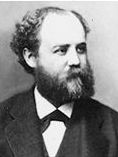Scabies.
Causticum [Caust]
It is esp. useful when the Itch has been suppressed by ointments of Mercury or Sulphur.
Mercurius [Merc]
It is indicated when pustulous and eczematous eruptions complicate the case.
Oil of Lavender [ ]
It is used as a local application, which will kill both the eggs and the fully-developed insects (Sarcoptis Homines-which causes the Itch), without suppressing the disease. It should be applied after thoroughly washing the parts in warm water with soap, an then rubbing thoroughly with a common crash-towel. To cure the disease the indicated remedy is given internally.
Psorinum [Psor]
It is indicated for the bad effects of suppressed Itch. When Itch has been suppressed, it is an excellent remedy to develop it; usually it will cure the disease after its redevelopment.
It is also useful, when pustules or boils remain after Itch has been cured by some other remedy.
Sepia [Sep]
It is indicated after Sulphur, particularly when constitutional symptoms appear. There are occasional large and well-formed pustules (which develop into an Impetigo), which intersperse the Itch vesicles.
Sulphur [Sulph]
It is a valuable remedy in this affection. The symptoms indicating it are : Itching in the bends of joints and between fingers as soon as the patient gets warm in bed. The skin becomes rough and scaly and little vesicles form. As the disease progresses, occasional pustules appear here and there over the eruption. With it, Oil of Lavender should be applied as stated above to hasted the cure.


